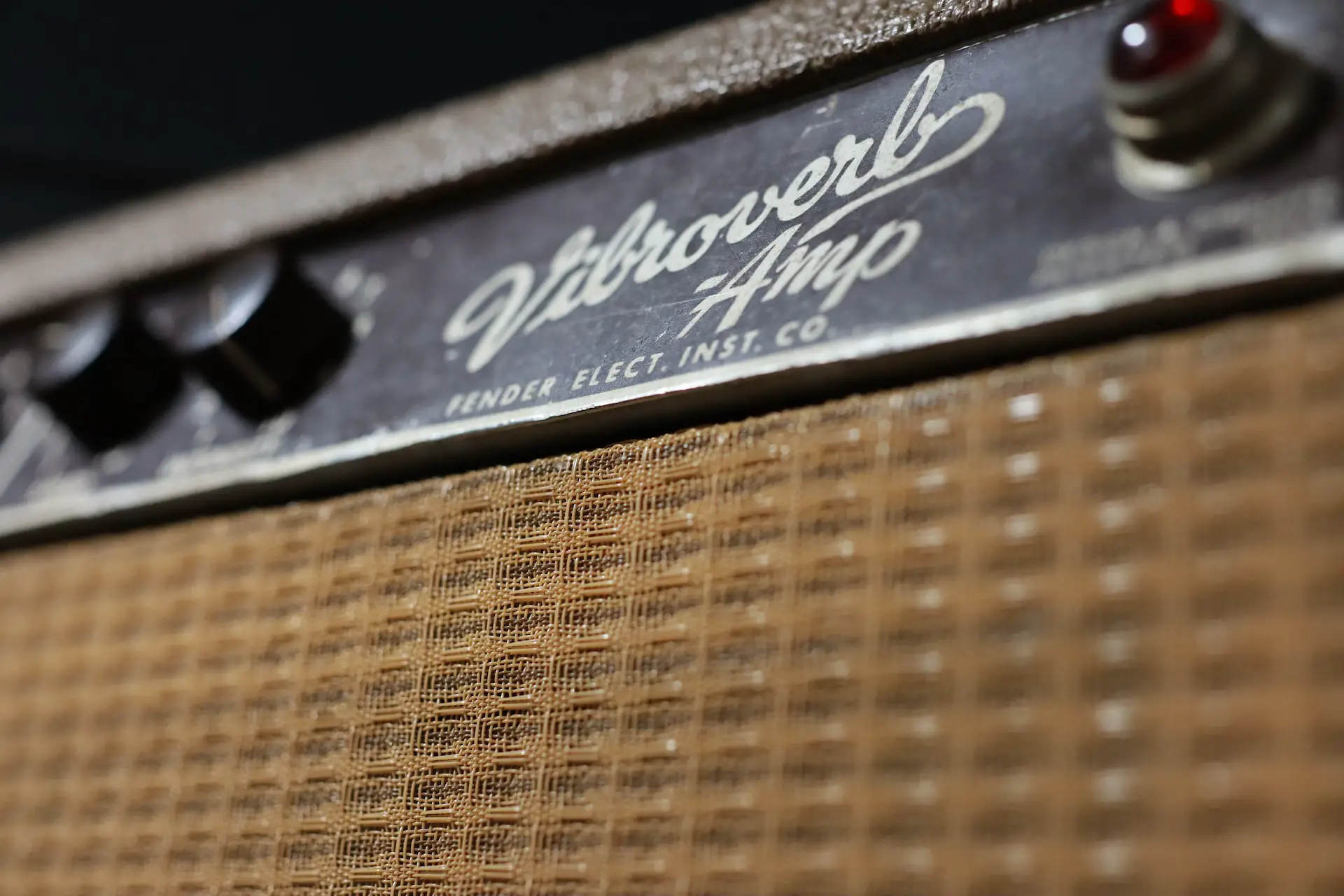All amplifiers have the potential to cause a buzzing sound for several different reasons. A small amount of humming or buzzing is normal. However, If the buzzing sound is loud and audible above your guitar playing, it is not suitable for the amplifier.
An amplifier can be excessively buzzing for several different reasons. It could be that there is just a minor issue with a cable, or it could be an issue with something inside of the amplifier or the guitar itself.
Troubleshooting is highly recommended to resolve the issue if this is happening. This article will help provide some assistance with this process. However, if excessive buzzing still exists, it is best to take the amplifier to a technician at your local music store.
As someone who has played guitar and bass for over seven years, I can confirm that several different factors can contribute to an amplifier buzzing. While a small amount of buzzing is normal, excessive buzzing is not normal and should be looked at. This article will cover what to do when that happens.
This article will also have links to other articles that can help you troubleshoot this problem in more detail should you need to. Let’s start with how an amp works.
Must Read: Complete Guide To Stop EVERY Type Of Buzzing Noises For Amp!
How Does Amp Work & Why Does It Buzz?

Amp uses electrical power to amplify the sound from your string.
Amplifiers use a large amount of electrical power to amplify the sounds your strings are making when you strum or pluck them and then amplify them into a loud enough sound that can be heard clearly through your amplifier.
This is done by harnessing the electromagnetic signal picked up from your guitar pickups that are then sent through the pickups through the cable to the amplifier.
Since your amplifier is an electrical piece of equipment, it will have the potential to create some buzzing sound. If you were to stand under power lines, you would hear a humming sound produced by the excessive amount of electricity going through the power lines. This is referred to as the 60-cycle hum.
Is Your Amp Supposed To Buzz? (Is It Normal?)
A small amount of buzzing is normal when your guitar amplifier is turned on. All guitar amplifiers have the potential to generate some buzzing noise. A guitar amplifier buzzing in and of itself is not necessarily proof that something is wrong.
This buzzing sound is typical with any electrical equipment that uses great power, such as a guitar amplifier. However, it is abnormal and potentially dangerous to your amplifier if an excessive buzzing sound is as loud or louder than your guitar playing.
What’s The Consequence Of Amp Buzzing?

My face when the buzz is louder than my plucking.
If an amplifier is constantly buzzing, and the buzzing sounds are loud enough to overpower your guitar playing (or even as loud), then this can be a threat to your amplifiers shelf life.
If this type of buzzing is left untreated, it can result in replacing the speaker or potentially other internal circuits in the amplifier.
Additionally, loud amp buzzing will hinder your playing and prevent your guitar and your speaker from producing the tone it’s actually capable of. Overall, your playing tone will not be as clean and it can be frustrating in the long run.
NOTE: If your amp has been buzzing for a long time and you are used to it, I suggest visiting a guitar store and try out an amp that doesn’t buzz. It will sound completely different and you will be impressed – guaranteed.
Now that’s said, let’s try to fix your amplifier buzzing issues and how to prevent them with ways below.
Ways To Prevent Amp From Buzzing Or Hissing
As you read through this, please keep in mind that there is no way to remove all buzzing and hissing from your amplifier. However, you can try several quick things to prevent your amplifier from buzzing or hissing. Often, just doing these few things can help tremendously:
1. Prevent twisting your cable

Bad guitar cable due to twisting
A guitar cable will bend and twist over time, so there is a long-term possibility of the wires in your cable getting old and worn over time. This can cause your amplifier to start buzzing.
If you are seeing this starting to happen, consider replacing your guitar cable. It is a good idea to upgrade to the best cable possible to prevent this unwanted buzzing in the future.
2. Prevent constantly unplugging your power plug
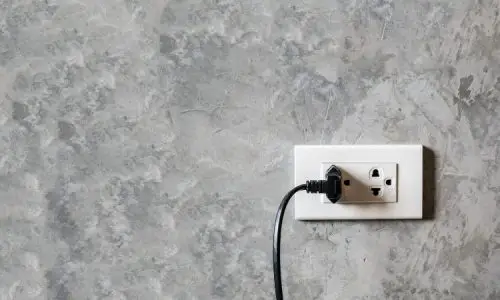
Bad power plugs are notorious for causing buzzing sound. To prevent this, avoid plugging and unplugging your power cable – if you can leave it on, that would be the best. If you need to unplug it every time, then do it with care.
A power cable will also bend over time, due to this, it’s inevitable for your power cables to get old and worn. This can also cause your amplifier to start buzzing.
Consider replacing your power cable if they are old and beat. Doing so can be a big help in eliminating unwanted buzzing sounds as well.
3. Get a surge protector

Socket with surge protection
Electricity runs in a current and can sometimes have spikes and sudden surges. If you are plugged into an electrical outlet that often has these, or if you happen to be unlucky enough to catch a surge, this can cause an unwanted buzzing sound.
A surge protector between your direct electrical outlet and your amplifier will significantly help prevent unwanted buzzing sounds from electrical surges. It is a good insurance policy to protect your amplifier as well.
4. Play further away from the amp
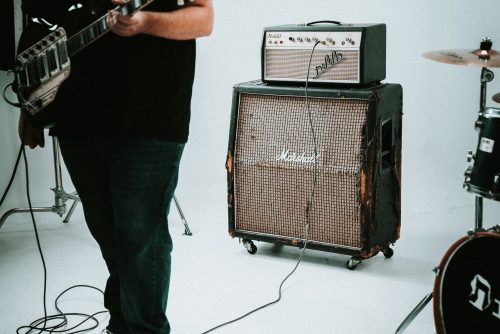
Playing with single-coil pickups can create a feedback sound through your guitar amplifier if you stand too close to the amp. If you are playing with single coil pickups, backing away from the amplifier should dramatically reduce the buzzing sound you will hear.
An investment into humbucker pickups is well worth it for the added power. Additionally, they do not result in a buzzing or feedback sound since they are dual-wound pickups.
5. Get shorter cables
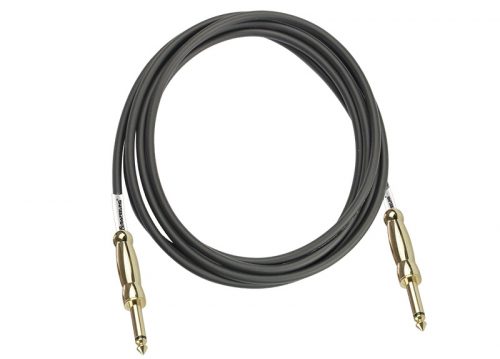
Placing your cables curled up next to a large amplifier can sometimes cause a buzzing sound. This is because your cables receive electromagnetic interference from the amplifier you are playing through.
Your best bet is to get a cable that is just long enough to play through so that there is not any unused portion of it that can be curled up next to the amplifier.
Also Read: Can Bad Guitar Cable Cause Amp Buzz? Reason & Recommendation
6. Clean the dust off
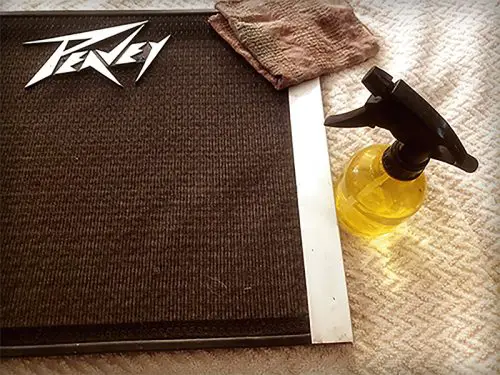
Accumulated dust in your jacks can create a buzzing sound in your amplifier. Simply taking a Q-Tip with rubbing alcohol and cleaning out each of these jacks will remove any excess dust from the jack. Please wait at least one hour before plugging in and playing again.
This is by no means an all-inclusive list. There are several different reasons why an amplifier may create a buzzing sound.
Is Buzzing Noise Only Created In Cheaper Amps?
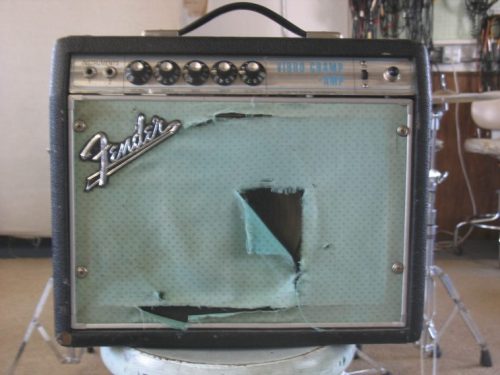 Generally, a cheaper amplifier may buzz more easily than an amplifier that is more solid and well-constructed. For example, if one amplifier is not as soundly constructed, it may buzz or vibrate on specific notes more harshly than an amplifier that is not as well constructed.
Generally, a cheaper amplifier may buzz more easily than an amplifier that is more solid and well-constructed. For example, if one amplifier is not as soundly constructed, it may buzz or vibrate on specific notes more harshly than an amplifier that is not as well constructed.
However, there are several different factors that could contribute to this happening that have nothing to do with the amplifier itself, such as the cables you are using or even the pickups you are using in your guitar (single-coil pickups can sometimes buzz).
Even fluorescent lighting in a room can influence potential buzzing in an amplifier. None of these have anything to do with the amplifier itself, so it is not fair to say buzzing noises are only created in cheaper amplifiers.
Any amplifier has the potential to create a buzzing sound. Please review the information below for more information on ways to prevent the amplifier from buzzing or hissing.
Is There An Amp That Doesn’t Buzz?
There isn’t any amp that’s guaranteed not to buzz. That said, most good quality amps will not cause any buzzing if you take care of it properly.
Amplifiers can create a buzzing sound for a large variety of reasons. These can be guitar cables, power cables, or a loose soldering connection in the amplifier. There is no way to guarantee that an amplifier will 100% never cause a buzzing sound.
Once your amp starts buzzing, you have to troubleshoot the issue and look into it. Fortunately for you, I have had my fair share of buzzing amps. So, I have the experience and have compiled a list of articles for your buzzing troubles:
- Why Amp Starts Buzzing When It’s Turned On: 5 Reasons & Fixes
- Why Does Amp Buzz When The String Isn’t Touched: Is It Normal?
- Amp Buzzing When Plugged Into Guitar: 7 Reasons & Fixes
- Is It Normal For New String To Buzz? (How Long Does It Last)
Conclusion
In conclusion, this article covered what to do when buzzing from your amplifier happens. This article also has links to other articles that can help you troubleshoot this problem in more detail should you need to.
This article also covered how an amplifier works and why it buzzes, its consequences, if it is supposed to buzz or not, if the buzzing is created only in cheaper amplifiers, and ways to prevent it from buzzing in your amplifier should you notice it is occurring.


